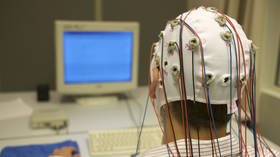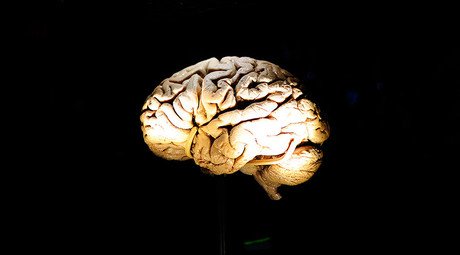Russia denies there's a crack team of scientists developing Putin-backed BRAIN IMPLANTS that'll give users mind-control over tech

Moscow has played down media reports that an elite group of Russian boffins is working on cutting-edge technology that could plug straight in to the human brain, allowing them to control computers with the power of their minds.
A source at Moscow's Ministry of Education told newspaper Kommersant earlier on Tuesday that the government had set up a task force to implement an order by President Vladimir Putin that will see new research into 'brain-computer' interfaces.
According to documents seen by its reporters, the federal initiative, named ‘Brain, Health, Intelligence, Innovation for 2021–2029’, will have more than 54 billion rubles ($737,600 USD) to spend on bringing future technologies to life.
Also on rt.com Thought police: Russian law enforcement seeks funding for development of $720 million 'virtual brain' to help catch criminalsThe proposals, put forward by the Russian Academy of Sciences, were said to have been given the green light by Putin back in March. Among the innovations planned are software and hardware that could convert brain signals into messages that can be read by computers and used to issue commands.
Other advances could include electronic stand-ins for drivers that allow the remote control of vehicles, and improved decision-making for artificial intelligence. The government reportedly believes it has a number of advantages in the field of high-tech computing, but recognizes the sector currently doesn’t receive enough funding to cement Russia’s role as a world leader.
However, asked about the plans at a press briefing on Tuesday, Kremlin spokesman Dmitry Peskov said he had no information about the program, and could “neither confirm nor deny” whether it was going ahead at present.
Shortly afterwards, the press service for the Ministry of Education and Science said it "denies information about the program for implanting microchips into brains," saying that, while it had originally been commissioned, its funding was cut at the end of last year as an "inexpedient" investment.
In 2015, a team of researchers in the Siberian city of Tomsk unveiled what they said was a physical model of a brain that was able to learn and educate itself. The development, they hoped, could end up being a vessel into which a real human mind could be transplanted.
If that doesn’t sound enough like science fiction, Russian police made a request in November for funding to develop a ‘neural network’ of artificial brains to help identify those involved in wrongdoing. The Ministry of Internal Affairs promised at the time that it would help “determine the individual anatomical features of a person, obtained by using biological material from the crime scene.”
If you like this story, share it with a friend!















